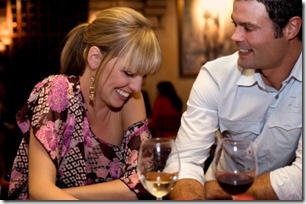Some Reporters Are Like That Guy At the Bar
I was having dinner with a friend recently when she looked over to the bar and groaned. When I asked her what was up, she told me that a man had just started hitting on a woman sitting by herself – but in the way that makes women cringe. She said that women all know “that guy.”
He’s the man at the bar who approaches a female stranger. He begins to chat her up, hoping to get on her good side. He thinks he’s being slick, but the woman can instinctively sense his ulterior motives.
Still, he persists. He agrees a little too easily with everything she says and laughs a little too loudly at her jokes. He’s waiting for that moment when (he hopes) she agrees to go home with him at the end of the night.

Perhaps it’s because I think about media training way too much, but it occurred to me that reporters have something in common with that guy at the bar: they’ll occasionally say what they have to to get what they want.
Sometimes, that means they’ll try to coax something out of you that you’ll later regret saying
Other times, they’ll make the case that they’re trying to help you, if only you’d share that juicy bit of confidential information with them.
But perhaps the most dangerous trap is the “best friend” reporter. Like the guy at the bar, the “best friend” reporter will schmooze you, quickly making you feel comfortable that he is on your side. After a few minutes, you begin to trust him – after all, he seems like a decent guy.
When the story runs, you’re devastated to find that he abused your trust by printing some of your most damning statements. But he didn’t abuse your trust. His loyalty was always to the story, not to you.
Most reporters I’ve worked with are genuinely nice people. But you should never confuse the genuine kindness of a reporter for that of a long-lost friend. Be friendly, be warm, be outgoing – but never tell him things you might later regret.


